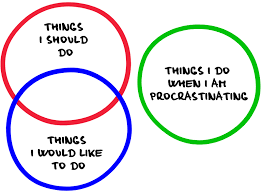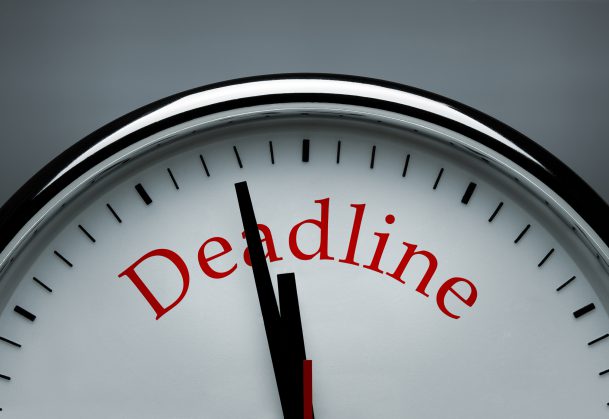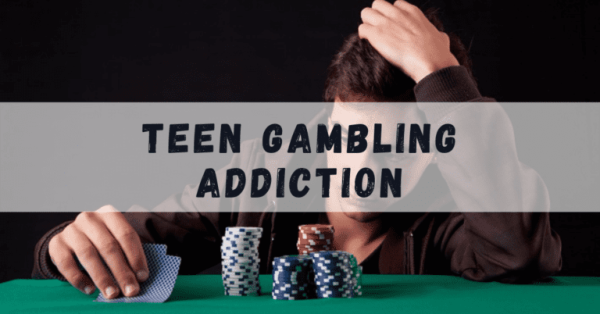Is there a direct relation between procrastination and grades? Probably not so much.
 With constant distractions in their homes all day and with loads of homework to do, students struggle to keep from procrastinating. But a study from StudyMode showed that only 45 percent of students see negative impacts of procrastination on their grades. The study found that a whopping 87 percent of high school and college students call themselves procrastinators. But with more than half saying their grades are unaffected by their homework habits, it’s worth questioning whether procrastinators can also be overachievers.
With constant distractions in their homes all day and with loads of homework to do, students struggle to keep from procrastinating. But a study from StudyMode showed that only 45 percent of students see negative impacts of procrastination on their grades. The study found that a whopping 87 percent of high school and college students call themselves procrastinators. But with more than half saying their grades are unaffected by their homework habits, it’s worth questioning whether procrastinators can also be overachievers.
Almost everyone has done their fair share of procrastination, whether it’s a big project that’s not due until next month or a worksheet from their least favorite class. Even some teachers at Olympic Heights are or were procrastinators.
“I procrastinated to an almost professional level at school and in university,” social studies teacher Mr. Michael Taylor explained. “I almost never began work until the last minute and would frequently pull all-nighters to get the job done. Looking back, I have no idea how my grades were so good because I really did push it!”
The StudyMode study shows that the most common ways to procrastinate include watching movies or TV (61 percent), using social media (58 percent), and sleeping (46 percent). Technology related distractions are very common, and they are becoming even more difficult to avoid.
“If you get distracted by technology, you could try putting your technology away. But the problem with that is that most of our assignments are online, especially now,” said OH sophomore and confessed procrastinator Ariana Bitar.
People who procrastinate usually put off assignments they don’t want to do the most, but OH sophomore Benjamin Zapson does the opposite to avoid procrastination. “I manage to stay on top of things by doing them as soon as possible, whether I am ‘in the mood’ or not,” he said.
Procrastinators can still be overachievers. It doesn’t matter how late it is or what assignments are due; they will still do what they have to to get good grades. But why do they keep falling back to their damaging habits when they’re still going to put their all into their work?
Some enjoy the rush of doing things at the last minute, especially with the extra time it takes to give 110 percent. OH social studies teacher Ms. Amanda Aiello said, “I need the stress and pressure to motivate me, so I most certainly procrastinated on a lot of assignments and such when I was in high school and even into college. My grades never suffered from it because I would always put in the hours to get done whatever I needed to.”
On the other hand, some procrastinators are likely to keep doing assignments at the last minute because it has worked out before. Students may experience overwhelming stress leading up to due dates, but as long as they see that capital letter A, will it be worth it?
“The moment I remember about an assignment, I freak out and worry that I won’t be able to finish in time,” explained OH sophomore Lydia Barakat. “I know that procrastination is bad and I should stop doing it, but I always end up getting away with a good grade, which causes me to do it more.”
Without being able to tell who is procrastinating, who is overachieving, and who is an overachieving procrastinator, teachers and students may find it hard to tell who is procrastinating and who isn’t.
OH English and AP Art History teacher Ms. Gina Woods finds it difficult to distinguish procrastinators in a class full of brilliant students. Writing and papers are the most commonly procrastinated assignments according to StudyMode, with 61 percent of students saying they’re most likely to procrastinate on those kinds of assignments.
“I have some very talented writers, and I’m truly impressed by what they produce,” Woods explained. “But then when I speak to them about their work habits in general or the specific conditions under which they produced the work I specifically admired, they tell me they composed it during lunch just before my class at 1:00 P.M.”
Students can be at the top of their class and still procrastinate. They can have the worst grades but still do their work early. How people approach their assignments is between them, their homework, and their willingness to be productive and hard-working; it has nothing to do with their grades.
At the end of the day, there is no perfect image of a procrastinator. A “straight-A student” can struggle with procrastination just as much as a failing student.












Michelle Buoye • Oct 1, 2020 at 12:07 pm
Great article. Glad to see you are not shaming procrastinators. Everyone’s work habits are unique. It is about the desire to achieve.